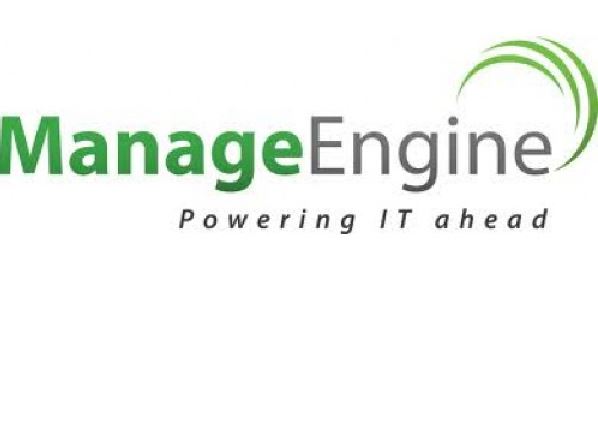
 New EventLog Analyser API Enables Company’s SIEM Solution to Feed Reams of Normalised Log Data into Any Third-Party Application
New EventLog Analyser API Enables Company’s SIEM Solution to Feed Reams of Normalised Log Data into Any Third-Party Application
- Integrate security data with cloud or crowd-sourced threat intelligence services, vulnerability assessment platforms and business intelligence tools
- Pull business-critical security data and create customised dashboards, reports
- Gain advanced security intelligence; trace, thwart and combat evolving threats
- Learn more about the API at http://ow.ly/zaxKi
ManageEngine, the real-time IT management company, recently announced a new API that enables third-party tools to access log data generated by EventLog Analyser, its security information and event management (SIEM) solution. Available immediately, the EventLog Analyser API lets security administrators feed reams of normalised log data into any third-party application, including crowd-sourced threat intelligence solutions, vulnerability assessment platforms, business intelligence tools or even custom applications for advanced security intelligence and threat protection.
Cybersecurity is becoming increasingly complex, and cyberattacks have become an international crisis. Though the market is flooded with various types of IT security analytics solutions, no single solution could offer effective protection against all emerging threats. Combating advanced threats requires information security solutions to integrate with each other, share data and intelligence, and ultimately protect businesses.
“While security visibility across all elements of IT infrastructure has become essential, most organizations cannot afford huge investment on big data analytics. The current enhancements in EventLog Analyser bridge this crucial gap,” said Chenthil Kumaran, Product Manager – EventLog Analyzer, ManageEngine. “The benefits of this integration are numerous, but the effort to leverage them is negligible. It does not require professional services or any additional investment to leverage the benefits.”
Advancing SIEM through Integration
Though SIEM solutions have been offering provisions to import data from varied sources, such integrations are fraught with many limitations. In the absence of proper correlation and data processing, feeding terabytes of data to the SIEM solution will not offer the required protection. EventLog Analyser shatters all these limitations by opening up its database for integration with any third-party application.
Security administrators can leverage this integration to bolster their security framework in such use cases as:
- Advanced threat mitigation – The normalised data from EventLog Analyser could be fed into crowd-sourced advanced threat intelligence services, sandbox solutions or sophisticated vulnerability assessment platforms. These tools can associate EventLog Analyser’s security data with the information they already possess and help mitigate emerging attacks, botnets, zero-day threats, phishing attacks, malware attacks and advanced persistent threats (APT).
- Location-based threat analysis – Integration with geolocation services could help enterprises gain geographic context to any event. This, in turn, helps pinpoint the country of origin and physical location of an application involved in an event. If the origin matches the countries commonly associated with APTs, suspicious traffic could be isolated for deeper analysis.
- Customised security views – Security managers could even create their own web applications and dashboards by extracting the data critical to their needs.
- Application performance tuning – Normalised data from EventLog Analyser could be fed into modern business intelligence tools, which could help organisations understand the evolving threat landscape, assess risks and prepare mitigation strategy and an emergency response plan in the event of attack. The data could also help drill down to overall application performance issues and assess product usability and quality.
EventLog Analyser provides Thrift IDL-based APIs which security administrators can use to pull all required data and achieve integration. The power of the API has been demonstrated through a Python-based client as the reference implementation.
EventLog Analyser collects, normalises, analyses, correlates and stores voluminous logs from heterogeneous sources. Now, the API can provide actionable intelligence and help security admins trace, thwart and combat evolving threats.
Pricing and Availability
The API is available immediately and works with EventLog Analyser v 9.0. Users can submit a request to access the API, and the EventLog Analyser technical support team will get in touch with them. The Professional Edition of EventLog Analyser starts at $795, and a fully functional, 30-day trial version is available for download at http://www.manageengine.com/products/eventlog/download.html.
About EventLog Analyzer
ManageEngine EventLog Analyser is a web-based, real-time, log monitoring and compliance management solution for security information and event management (SIEM) that improves internal network security and helps organizations comply with the latest IT audit requirements. For more information on ManageEngine EventLog Analyser, please visit http://www.eventloganalyzer.com/.
About ManageEngine
ManageEngine delivers the real-time IT management tools that empower an IT team to meet an organisation’s need for real-time services and support. Worldwide, more than 90,000 established and emerging customers — including more than 60 percent of the Fortune 500 — rely on ManageEngine products to ensure the optimal performance of their critical IT infrastructure, including networks, servers, applications, desktops and more. Another 300,000-plus admins optimise their IT using the free editions of ManageEngine products. ManageEngine is a division of Zoho Corp. with offices worldwide, including the United States, United Kingdom, India, Japan and China. For more information, please visit http://buzz.manageengine.com/; follow the company blog at http://blogs.manageengine.com/; on Facebook at http://www.facebook.com/ManageEngine and on Twitter at @ManageEngine.




